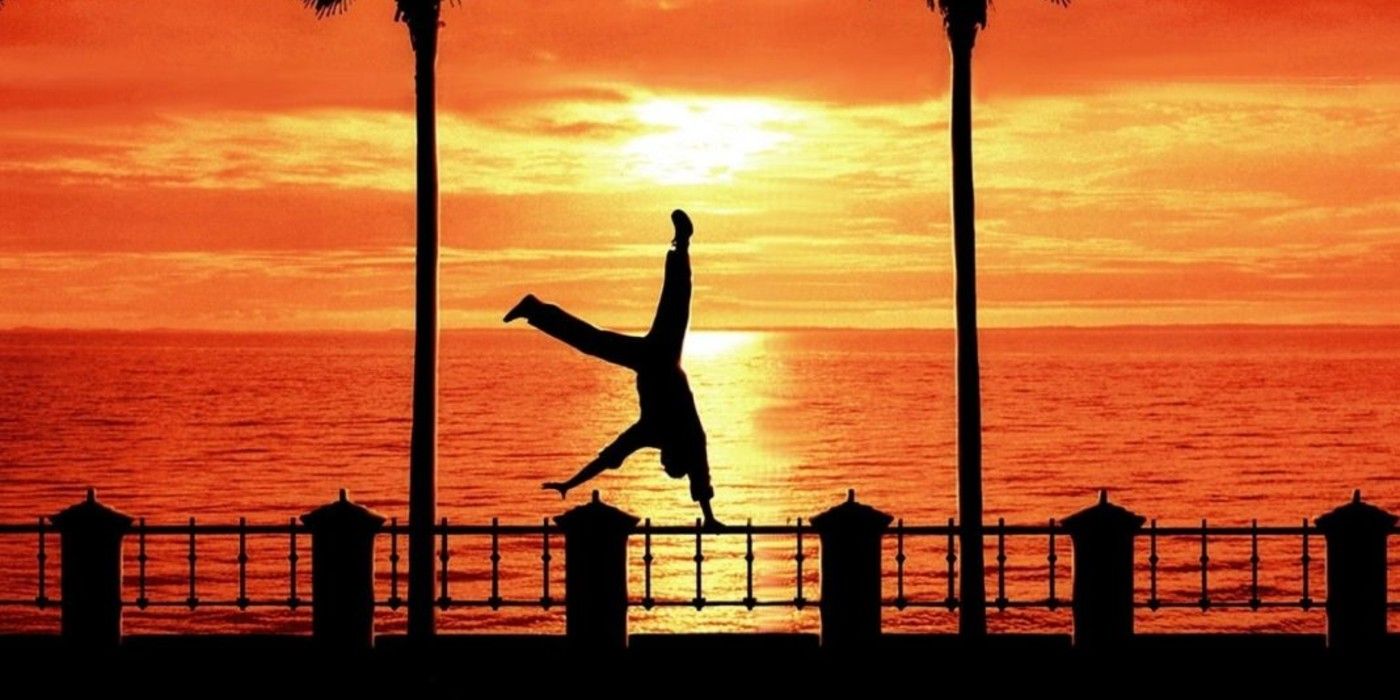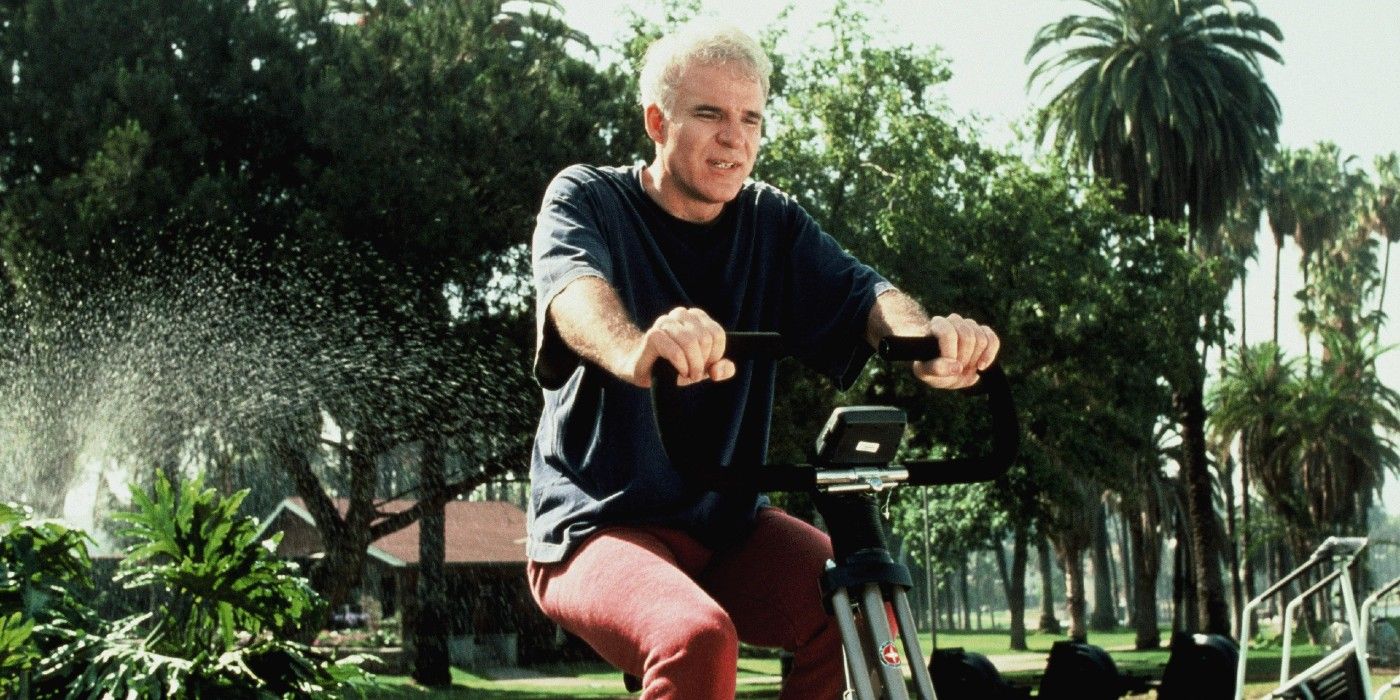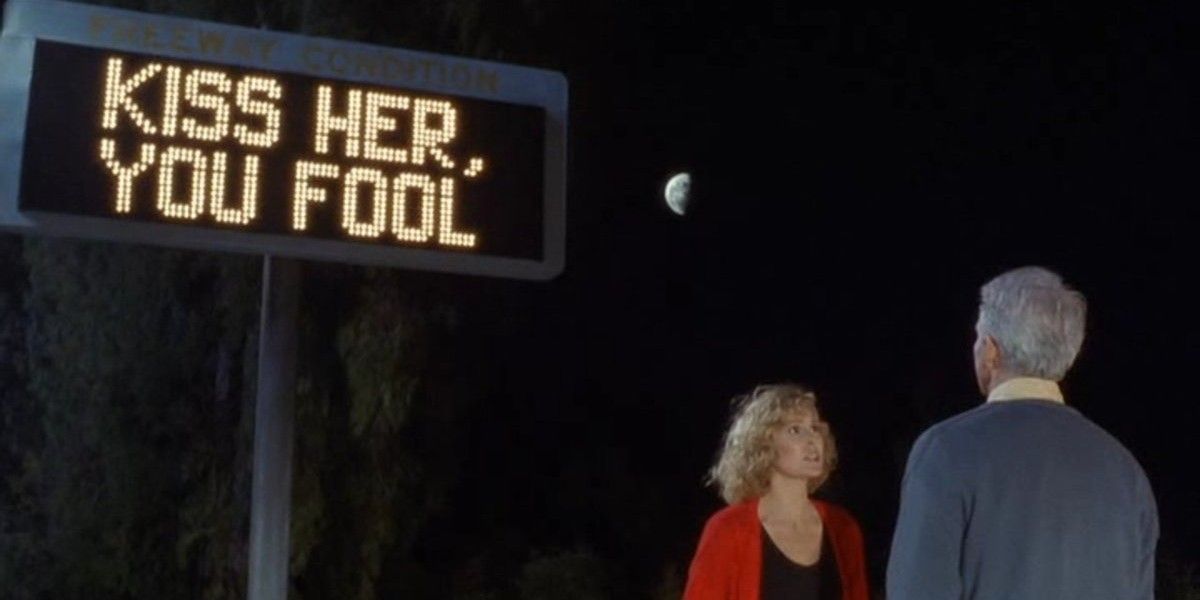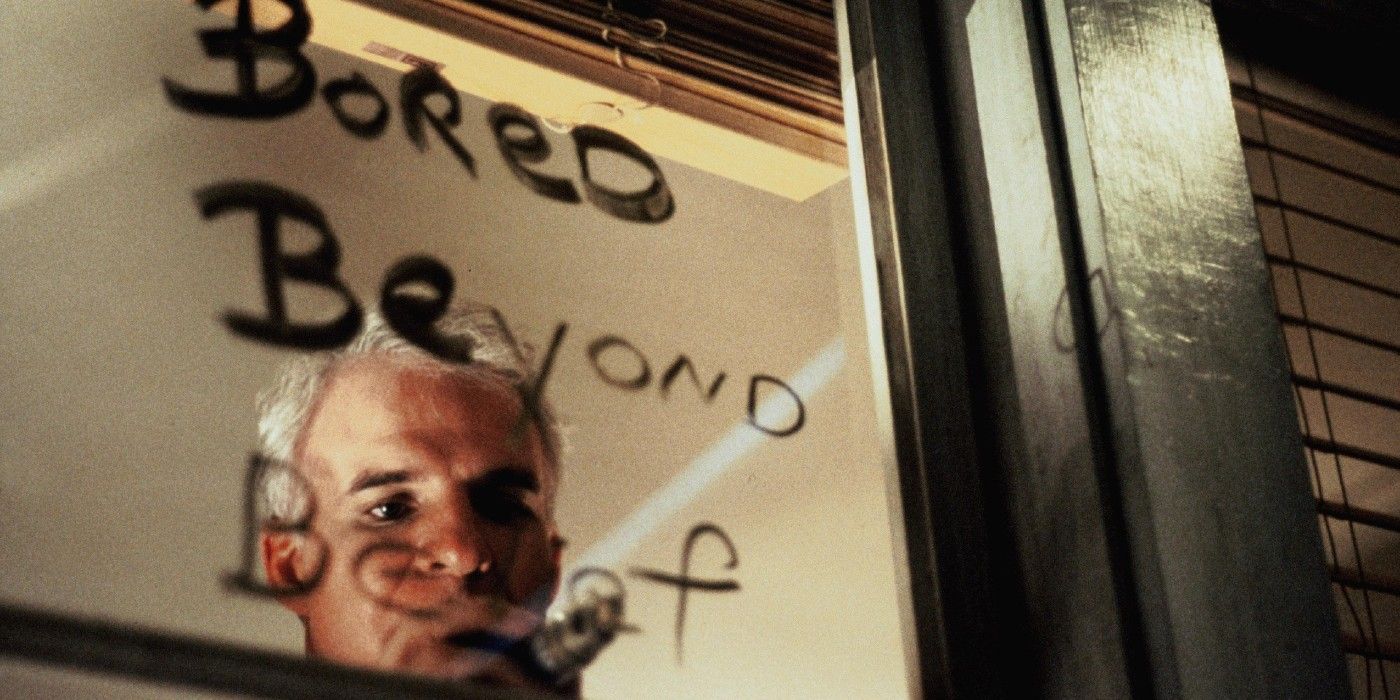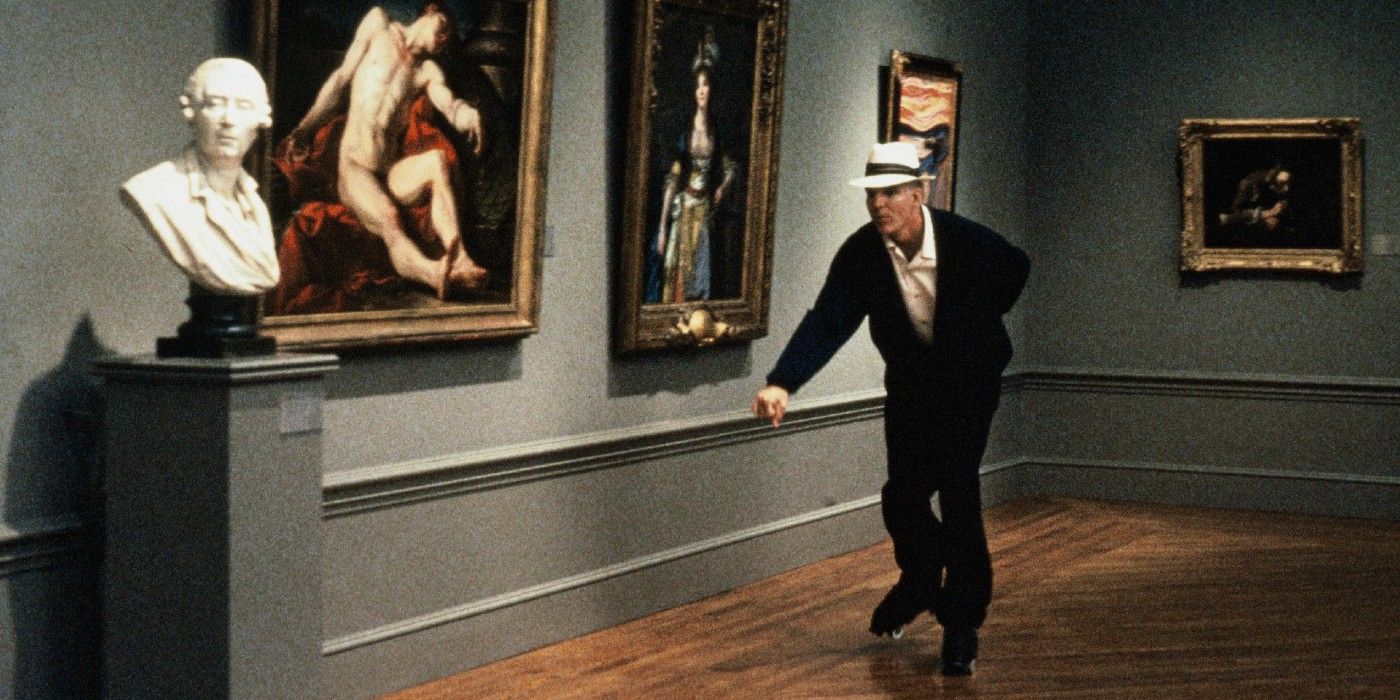L.A. Story hit theaters 30 years ago this week, and for some inexplicable reason my mom took me to see it. Steve Martin’s modern day satirical fairy tale is both an indictment of 90s Los Angeles culture and a meditation on experiencing a career stall-out as a television comedian, and neither theme really spoke to me at the time. My worldview was still small enough that a significant portion of it was occupied by whichever Ninja Turtle I’d just received for my birthday. Consequently, L.A. Story seemed like the most adult thing I’d ever seen, which is both ironic and appropriate, considering it’s an absurdist fantasy about having an existential crisis in your 40s.
According to its disappointingly sparse Wikipedia entry, L.A. Story was voted the 20th best film about Los Angeles by the Los Angeles Times. Sadly, only a portion of the piece appears to have been successfully archived, so I can’t actually read what the city’s paper of note had to say about Martin’s bizarre comic fantasy. However, the fact that a decades-old film about modern L.A. culture made it onto the Times list in 2008 is a testament to the movie’s authenticity, and after revisiting it for the first time since the Clinton administration, I can say that L.A. Story remains improbably relevant as both a takedown of Southern California lifestyle and an examination of the internal struggle faced by everyone with a career in the entertainment industry. In other words, this movie put me on full fucking blast. It used my face as the springboard for a glass-shattering tomahawk dunk from which I may never recover, no matter how long I spend staring up at an enchanted freeway sign.
If you’ve never seen it, L.A. Story follows a moderately successful wacky T.V. weatherman named Harris K. Telemacher (Martin) who is completely entrenched in the Los Angeles lifestyle. He has a glamorous girlfriend (Marilu Henner), dines out with wealthy friends, drives a nice car complete with a Garfield plushie, and attends a regular spin class where he frets about all of the health problems he doesn’t actually have. Harris becomes smitten with Sara (Victoria Tennant), a British journalist who is briefly in town to research an article about the city and who used to be married to Harris’ friend Roland (Richard E. Grant). After receiving some cryptic advice from a seemingly possessed traffic condition sign, Harris begins to break out of his Los Angeles routine and pursue a more fulfilling life that isn’t bogged down by superficial metrics of status or success. There’s also a pretty sweet joke about Beethoven’s balls in there that is still exactly as funny to me in 2021 as it was in 1991.
The first thing you notice about L.A. Story is how loud its criticisms of L.A. are. Martin has the film’s sole writing credit, and on the surface it might seem like his goal was simply to lay out a list of personal grievances and skewer them with his trademark silliness. Harris is careful to observe the proper etiquette while engaging in a shootout on the freeway (freeway violence was a headline-grabbing concern in the late 80s and early 90s). He and his friends order half a dozen different versions of decaf coffee at a pretentious L.A. bistro where the tables are violently rearranged by earthquakes that are barely noticed. Health-obsessed Angelinos have heart attacks in the middle of their aggressive workouts and are carted off by EMTs in the background as Harris continues riding his stationary bike without batting an eye. People barely stifle their laughter after overhearing someone admit to living in The Valley. The hottest restaurant in town is called L’Idiot (pronounced “La Dio”), where they screen each guest according to how much money their latest movie made and their current gossip rag status. Thugs line up side-by-side with bank customers at the ATM to make muggings more convenient. Harris and Sara take a romantic weekend trip to El Pollo Del Mar (literally “the chicken of the sea”). It's Lifestyles of the Rich and Famous by way of The Naked Gun.
L.A. Story lampoons every aspect of being a Los Angeles socialite with surrealist absurdity. While these gags were all silly enough to be appreciated by an 8-year-old, the most surprising thing about watching the movie again as an adult is how relevant the seemingly obvious satire is 30 years later. We’re still doing all the same dumb shit out here on the West Coast - with the exception of the film’s relative lack of cellphones and the absence of social media, it could be released today with very few updates. The fact that Martin’s over-the-top observations remain applicable over a quarter of a century after he made them might be L.A. Story’s most effective criticism of Los Angeles. But it’s the film’s more subtle ruminations on the search for happiness and creative fulfilment that absolutely gutted me this time around.
Beneath its frenetically wacky exterior, L.A. Story is a movie about a guy in the midst of a mid-life crisis, questioning whether he should stay adrift in a lifestyle that makes him miserable simply because it’s a comfortable one. We see Harris come barreling into the studio late, after boldly navigating L.A.’s infamous traffic via a series of sidewalks and shortcuts, and effortlessly knock out his comedy weather segment in a single take. But he pushes back against notes from his T.V. boss (played in a delightful cameo by a conspicuously mulleted Woody Harrelson) to make his weather segments more madcap and “less egghead,” and is desperate to be taken seriously in his field. However, when Harris ultimately makes the move to being a “serious” anchor, reading the news like a humorless professional, it’s a boring disaster that he clearly loathes.
Harris continuously quotes Shakespeare, with particular focus on a line from Macbeth about the nature of life – “It is a tale told by an idiot, full of sound and fury, signifying nothing.” Harris feels like his existence of endlessly chasing status in L.A. while waiting for his minorly successful television career to develop into something more fulfilling is ultimately meaningless. The fact that he’s a weatherman in Los Angeles, where the weather never really changes, is both a gag and a sharp punctuation to Harris’ growing fear of leading a pointless existence. The only time he seems to truly be happy is during his “performance art,” in which he roller skates through art museums on a pair of custom Air Jordans while his friend videotapes him.
Sara, the woman who effectively rescues Harris from his ennui, is such an outsider to Los Angeles culture that she literally drives on the wrong side of the road. She doesn’t understand why Harris refuses to walk even six blocks in the city, and she carries her own bags inside the Pollo Del Mar resort without a second thought instead of leaving them to be collected by bellhops. Harris views Sara as his way out of the L.A. trap, and in the course of his pursuit of her he manages to free himself from his stagnant relationship and career – the things that gave him status but were ultimately making him miserable. The traffic sign’s final message to Harris is “Sing Do Wah Diddy,” a classic pop song of no real significance. The sign is the universe telling him to stop living according to the critical logic in his head and to embrace the spontaneity of his heart. And folks, as a person who has spent the last decade pursuing a fledgling comedy career in Los Angeles, I feel personally attacked by this film. This movie is the cinematic equivalent of my parents asking me when I’m going to have kids.
L.A. Story is an odd duck of a film. It’s simultaneously a broad parody of yuppie life in Los Angeles and a pensive exploration of how we quantify happiness as a sum of the perceived value of our accomplishments rather than any actual satisfaction or fulfilment we derive from them. It’s silly art, like Harris’ roller skating, but silly art that resonated so deeply with me at this stage of my life that I had to spend several hours staring out of my window and listening to Enya before I was able to sit down and write this. And yes, I specifically listened to the Enya songs featured in L.A. Story, because my sound and fury only gets so loud and furious.

